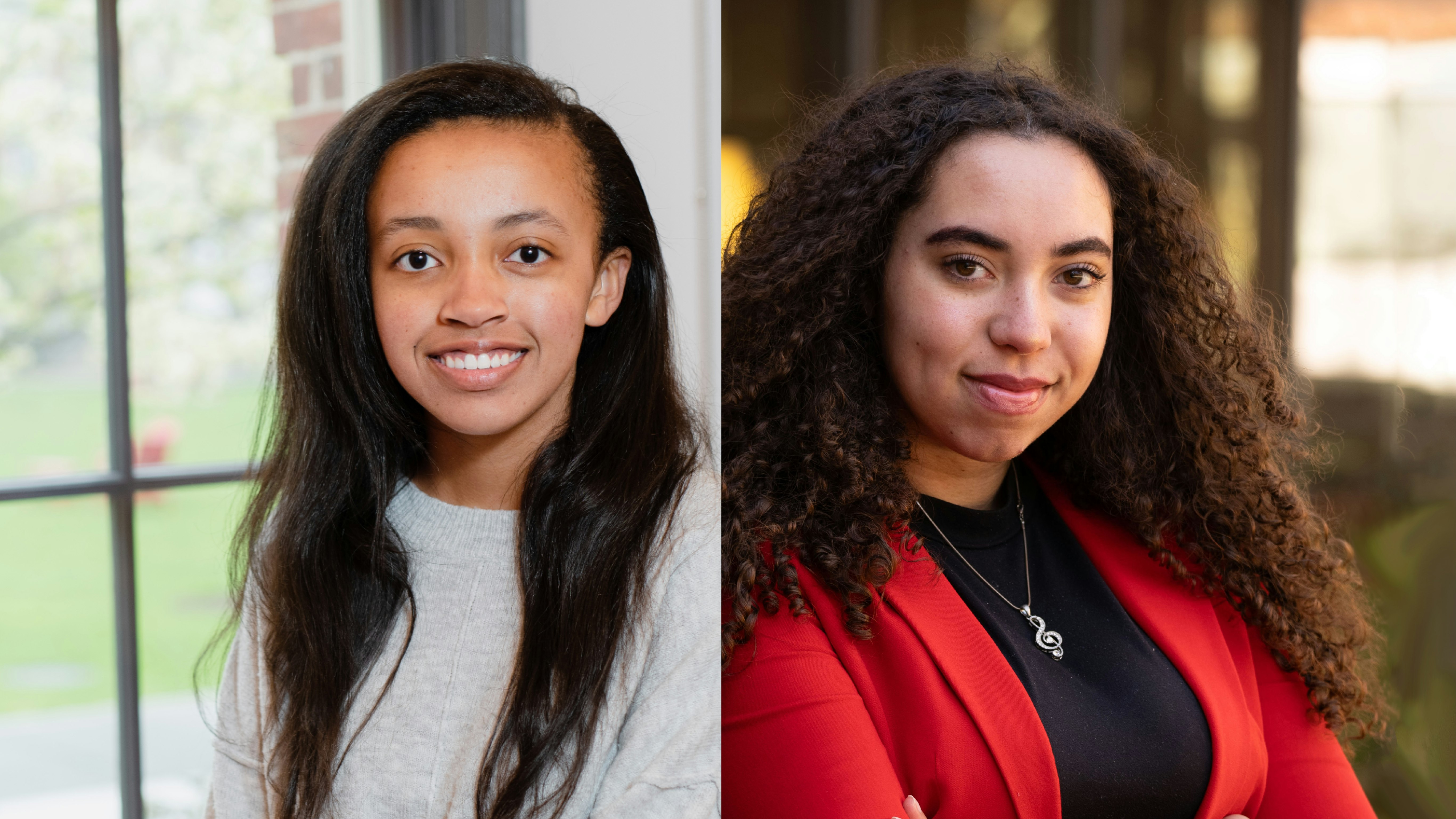Student Spotlight: Sophia Scott ’25 and Elyse Martin-Smith ’25

Elyse Martin-Smith and Sophia Scott are undergraduate students at Harvard College and contributors to the exhibition In Their Own Voices: Black Women’s Lives from the Archives, on view at the Poorvu Gallery until March 8, 2024. Martin-Smith is a joint concentrator in social studies and African American studies, and Scott is concentrating in human evolutionary biology with a secondary field of global health and health policy.
In Their Own Voices features photographs, letters, diaries, published materials, and more from both famous and everyday Black women, including the graphic designer Louise E. Jefferson, the educator Rebecca Primus, and the civil and women’s rights activist Pauli Murray. Over the summer, Martin-Smith and Scott reviewed and reacted to materials from the exhibition.
Taking inspiration primarily from Murray’s papers, Martin-Smith wrote a collection of poems in the blackout poetry style of Reginald Dwayne Betts RI ’12. She looked at newspaper clippings about Murray, picking out certain words that shed light on underlying messages in the articles—messages promoting transphobia and whiteness.
As part of her creative process, Martin-Smith answered questions written by Murray in the margins of various documents. “My goal is that when someone goes to see my work, they have their own questions and comments and connections that they make in the margins showing that there is no right answer to the very important questions Pauli Murray was asking about race, and gender, and the world—but the beauty is in everyone’s individual interpretations,” says Martin-Smith.
Scott also responded to Murray’s papers, but her response takes the form of an essay. Scott conducted the bulk of her research and writing during a time when a wave of anti-trans legislation and fearmongering swept the country.
Scott says reading about Murray’s life against this backdrop “raised alarm bells” in her head because the discrimination and medical misunderstanding Murray experienced seemed eerily similar to what was happening in the present. “Today, with gender-affirming care being illegalized in states across the country and stigmatized around the world, it really felt important to highlight the fact that we haven’t really come that far and also… how important it is to believe people when they say that they need gender-affirming care.”
Both Martin-Smith’s and Scott’s work will be on view in the exhibition, which opened on November 6.
Sam Zuniga-Levy is a writer at Harvard Radcliffe Institute.







